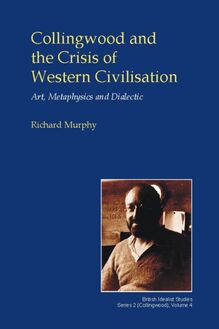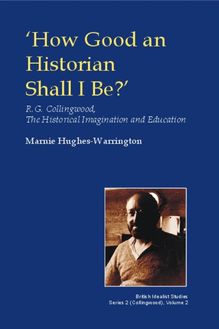-
 Univers
Univers
-
 Ebooks
Ebooks
-
 Livres audio
Livres audio
-
 Presse
Presse
-
 Podcasts
Podcasts
-
 BD
BD
-
 Documents
Documents
-
- Cours
- Révisions
- Ressources pédagogiques
- Sciences de l’éducation
- Manuels scolaires
- Langues
- Travaux de classe
- Annales de BEP
- Etudes supérieures
- Maternelle et primaire
- Fiches de lecture
- Orientation scolaire
- Méthodologie
- Corrigés de devoir
- Annales d’examens et concours
- Annales du bac
- Annales du brevet
- Rapports de stage
La lecture à portée de main
Vous pourrez modifier la taille du texte de cet ouvrage
Découvre YouScribe en t'inscrivant gratuitement
Je m'inscrisDécouvre YouScribe en t'inscrivant gratuitement
Je m'inscrisEn savoir plus
Vous pourrez modifier la taille du texte de cet ouvrage
En savoir plus

Description
Sujets
Informations
| Publié par | Andrews UK |
| Date de parution | 03 mars 2016 |
| Nombre de lectures | 0 |
| EAN13 | 9781845408220 |
| Langue | English |
Informations légales : prix de location à la page 0,1124€. Cette information est donnée uniquement à titre indicatif conformément à la législation en vigueur.
Extrait
Title Page
Action as History
The Historical Thought of R.G. Collingwood
Stein Helgeby
IMPRINT ACADEMIC
Publisher Information
Published in the UK by
Imprint Academic
PO Box 200, Exeter
EX5 5YX, UK
www.imprint-academic.com
Digital edition converted and distributed in 2016 by
Andrews UK Limited
www.andrewsuk.com
Copyright © 2004, 2016 Stein Helgeby
The moral rights of the authors have been asserted No part of any contribution may be reproduced in any form without permission, except for the quotation of brief passages in criticism and discussion.
This book is sold subject to the condition that it shall not, by way of trade or otherwise, be lent, resold, hired out or otherwise circulated without the publisher’s prior written consent in any form of binding or cover other than that in which it is published, and without a similar condition being imposed on the subsequent purchaser.
Dedication
For Rebecca and my parents
British Idealist Studies
British Idealist Studies Series 2: Collingwood
1: James Connelly, Metaphysics, Method and Politics
2: Marnie Hughes-Warrington, ‘How Good an Historian Shall I Be?’
3: Stein Helgeby, Action as History
Series Editor:
David Boucher, Cardiff University
Editorial Board:
W.H. Dray (Ottowa)
Gary Browning (Oxford Brookes)
Bruce Haddock (Cardiff)
Rex Martin (Kansas)
Guido Vanheeswijck (Antwerp)
Jan van der Dussen (Open University, Netherlands)
www.imprint-academic.com/idealis ts
Preface
R. G. Collingwood (1889–1943) was one of the clearest writers of philosophy in English, yet most interpretations of his work start by trying to decipher a mystery. For some, the mystery is what Collingwood meant by a particular theory. For many others, the mystery is how such a clear writer could hold confused or muddled views. My problem is different - how to see the clarity of view in the clarity of language. This is, necessarily, to seek to dissolve many of the mysteries.
Collingwood was the twentieth-century philosopher who most closely pursued the dual line of thought that history is the activity of historians and the activity of historical agents. His work can be understood in terms of four related themes: tradition; time and place; a rationale for being concerned with history; and, a project or aspiration.
In my view, Collingwood belonged to a tradition that included Vico, Hegel and Croce. According to this tradition, reason is present or immanent in history through human action. For Croce, who, prior to Collingwood, provided the most recent restatement of the tradition, human deeds, expressions, accomplishments and practices showed the working of reason in its many forms. Historical rationality was founded upon the ways in which self-conscious human beings acted, rather than upon the structure of concepts or the working of extra-human forces. The immanent reason tradition provides a way of understanding and anchoring the theory of agency within a broader world-view. Collingwood’s version of this theory was intended to overcome many of the problems bequeathed by earlier thinkers, and to provide an account of history and an ideal for action.
Collingwood’s thought emerged from a nineteenth-century culture in which historical studies and historical ways of thinking were pervasive, popular and politically significant. His career developed in a period that saw the emergence of professional academic history, to which he made a significant contribution as a practitioner and theorist. He pursued the problems of the character of historical thought and knowledge across the fields of theory and practice throughout his working life.
On Collingwood’s view, history is a universal aspect of action present in each and every act, and this provides the rationale for the philosophy of history. In this context, academic practices are important because they show standards of historical thought at their most developed; nevertheless, a philosophy of history cannot be restricted to academic themes. As Collingwood developed this concern with history as a universal aspect of action, he came to see that our self-knowledge and freedom to act are fully dependent on our historical reason.
I see Collingwood’s philosophy of history as aspiring to provide the grounds for a rational faith in the possibility of solving human problems. He sought to secure and deepen modern faith in reason, progress, civility and the malleability of human institutions, and thereby to deepen practice on each of these dimensions. The relevance of his thought to contemporary understandings of history and action lies in this broad project.
Reflection on historical practice provided Collingwood with a theory of knowledge; his moral philosophy provided him with a theory of the object of history. The sense of purpose in Collingwood’s philosophy of history was sustained by the close linkages he saw between these areas of philosophy and between historical practice and practical action.
Although each of these four dimensions - tradition, time and place, rationale and aspiration - features in this study, it is primarily concerned with what I have called his rationale and project or aspiration. I draw on, state and restate, Collingwood’s published and unpublished work to follow the development of his concepts of action and history. This means that the same issues recur throughout the study, but in different guises and with new and changing implications. In some cases, statement and restatement occur in the same chapter. In other cases, these take place between earlier and later chapters. My goal, then, is to move towards an understanding of Collingwood, rather than to presume it can be presented and then criticised. As, in the course of investigating a range of themes, I come to understand the concepts of action and history, the study draws towards a focus on modern historical consciousness and civilisation.
* * *
I am deeply indebted to David Boucher, who has been invaluable to me as a source of material, information, advice and support since this study began as a thesis at the Australian National University. I would also like to thank Bill Craven for his thoughtful and encouraging supervision of the original thesis and David Boucher and Keith Sutherland for the opportunity to revise it in this form. The Australian National University and the Trustees of the R.G. Collingwood Society provided financial support during the preparation of the thesis; passages from this study have appeared in print in the Society’s journal.
In common with other scholars, my understanding of Collingwood’s thought has been greatly enriched by the availability, and subsequent publication, of many of his manuscripts. I am grateful to Teresa Smith for allowing me to use these manuscripts. Colin Harris and the staff of the Modern Papers Reading Room at the Bodleian Library were unfailingly efficient in allowing me to read the papers deposited there. The Oxford University Press allowed me to search and utilise their archives, and I am grateful to Peter Foden, Jenny McMorris and Magda Seaton for their help. The Oxford University Archives also gave permission for me to use the material in their possession.
My warmest thanks go to Rebecca for bearing with me while I revised this study.
Introduction
Historical consciousness is common across Western cultures. This is a study of what is involved in that consciousness. The meaning and implications of modern historical consciousness are examined through an account of R. G. Collingwood’s thought on moral philosophy and history.
The existence of a way of viewing our place in the world that emphasises contingency, context and process is of inherent interest. The interest is heightened because the historical way of viewing the world may appear to compete with others founded on natural science and technology. One aim of these prevalent conceptions is to enhance control over circumstances, including human activity. Where an historical outlook appears to offer no more than understanding or wisdom, a study based on perceived regularity and law holds out the prospect of manipulation.
To see solely a conflict between historical and scientific conceptions of the world is, however, too simplistic. The scientific manipulation of nature, or the various attempts to offer a social science that permits the manipulation of people, themselves aim to achieve human ends that are situated in history. Rather, it would be better to say that human ends develop in, and are accepted or rejected through, history. The relationships between history, natural science and technology are complex and varied. Collingwood, for example, argued that natural science is dependent on historical thought to understand observations and theories. Understanding what history is must therefore be a requisite to understanding what nature is. [1]
To the extent that Western cultures share an historical consciousness, this is something over and above the existence of a moderately successful competitor in a contest for intellectual dominion. Viewing the world historically is part of our self-conception. If a concern with subjectivity is one of the defining characteristics of modernity and, in particular, of much philosophy from Descartes to Hegel and beyond, how we understand subjectivity is fundamental to what we are. Collingwood detected the rise of a new form of history in the nineteenth and twentieth centuries, meaning principally the emergence of a new activity or way of understanding the human past. He argued that the development of history in his own time represented a new stage in the development of human capability. This study will show how Collingwood’
-
 Univers
Univers
-
 Ebooks
Ebooks
-
 Livres audio
Livres audio
-
 Presse
Presse
-
 Podcasts
Podcasts
-
 BD
BD
-
 Documents
Documents
-
Jeunesse
-
Littérature
-
Ressources professionnelles
-
Santé et bien-être
-
Savoirs
-
Education
-
Loisirs et hobbies
-
Art, musique et cinéma
-
Actualité et débat de société
-
Jeunesse
-
Littérature
-
Ressources professionnelles
-
Santé et bien-être
-
Savoirs
-
Education
-
Loisirs et hobbies
-
Art, musique et cinéma
-
Actualité et débat de société
-
Actualités
-
Lifestyle
-
Presse jeunesse
-
Presse professionnelle
-
Pratique
-
Presse sportive
-
Presse internationale
-
Culture & Médias
-
Action et Aventures
-
Science-fiction et Fantasy
-
Société
-
Jeunesse
-
Littérature
-
Ressources professionnelles
-
Santé et bien-être
-
Savoirs
-
Education
-
Loisirs et hobbies
-
Art, musique et cinéma
-
Actualité et débat de société
- Cours
- Révisions
- Ressources pédagogiques
- Sciences de l’éducation
- Manuels scolaires
- Langues
- Travaux de classe
- Annales de BEP
- Etudes supérieures
- Maternelle et primaire
- Fiches de lecture
- Orientation scolaire
- Méthodologie
- Corrigés de devoir
- Annales d’examens et concours
- Annales du bac
- Annales du brevet
- Rapports de stage










